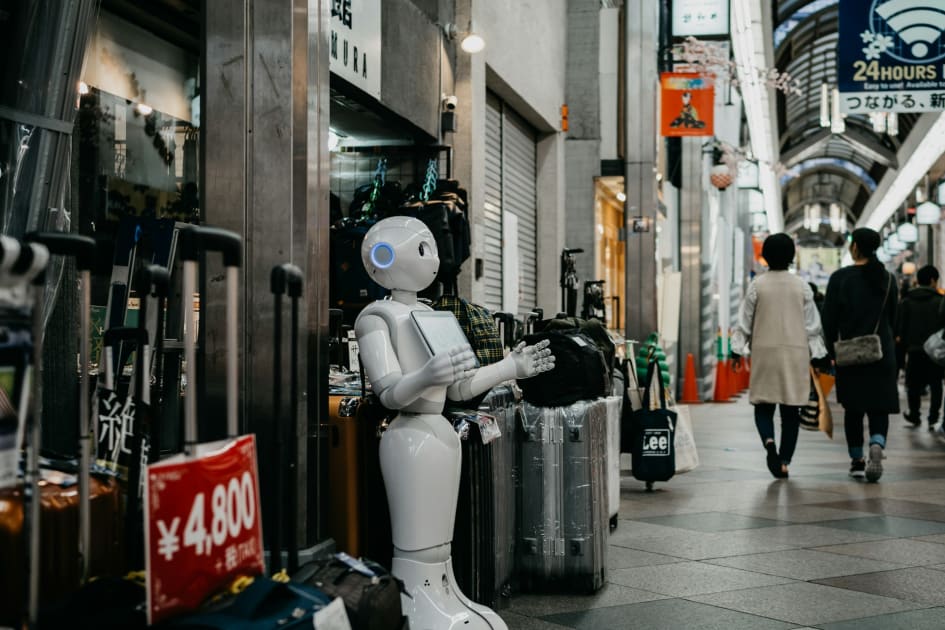The field of Artificial Intelligence (AI) has reached new heights in 2025. No longer confined to science fiction or experimental labs, AI now drives innovation in everyday life—from how businesses operate to how individuals learn, work, and even receive medical care. These breakthroughs are not just technological marvels; they are redefining human productivity, decision-making, and the ethical boundaries of intelligent machines.
Whether you're a developer, entrepreneur, student, or simply a tech enthusiast, staying informed about AI’s newest capabilities is essential. In this article, we’ll dive into the top innovations in AI for 2025 and explore how they’re shaping the future.
1. Autonomous AI Agents are Here
AI is no longer just reactive—it’s becoming proactive. The rise of autonomous AI agents is among the most significant leaps in 2025. These systems can independently make decisions, execute tasks, and adapt to changing conditions without constant human input.
Platforms like Auto-GPT and OpenAI Agents now feature multi-step reasoning, memory, tool use, and self-improvement capabilities. They’re being integrated into software to perform automated research, manage emails, run operations, and even build websites or code entire applications—all with minimal supervision.
Real-world application: In e-commerce, AI agents can now manage inventory, respond to customers, and optimize pricing strategies in real time.
2. AI-Powered Cybersecurity Defenses
Cyber threats have become more sophisticated, and so have the defenses. AI is now a core part of next-gen cybersecurity systems, capable of detecting anomalies, phishing patterns, and zero-day exploits in milliseconds.
2025 has seen a rise in predictive AI security tools that don’t just react but anticipate vulnerabilities before they are exploited. Machine learning models trained on vast datasets are improving intrusion detection, fraud prevention, and data integrity across industries.
Example: AI-powered firewalls now learn from every attack attempt and update security protocols automatically without waiting for manual patches.
3. Generative AI for Business and Creativity
Generative AI is no longer a novelty—it’s an essential productivity tool. Models like GPT-4.5, Claude, Gemini and Sora are being widely used to create content, generate reports, analyze documents, and simulate conversations in real time.
Businesses use generative AI to:
Automate content creation for marketing
Summarize complex legal or financial documents
Generate customer support responses
Build synthetic data for model training
On the creative side, AI tools now help write books, create music, generate videos, and produce high-quality art—sometimes in collaboration with humans, other times entirely autonomously.
Fun fact: Many startups now employ AI as a “team member,” delegating entire tasks to it through integrated workflows.
4. Responsible & Ethical AI Governance
As AI power grows, so does the need for control. In 2025, governments and companies worldwide are finally aligning around ethical AI standards and regulatory frameworks.
Key highlights include:
AI Act enforcement in the EU, regulating high-risk use cases
Global initiatives for watermarking AI-generated content
Mandatory transparency reports for model capabilities and risks
Ethical boards within corporations to evaluate bias, discrimination, and misuse of AI
The focus is shifting from "what can AI do?" to "what should AI do?"
Impact: Trust in AI has increased as users see greater transparency and fairness in how systems are developed and deployed.

5. AI in Healthcare: Diagnosis to Drug Discovery
In 2025, AI is saving lives. Healthcare has become one of the most AI-enriched sectors, with innovations improving speed, accuracy, and accessibility.
Notable use cases include:
AI-assisted diagnostics that detect diseases like cancer and heart conditions earlier than traditional methods
Robotic surgeries guided by real-time AI imaging
AI-driven drug discovery, which shortens the development time of new medications from years to months
Mental health chatbots offering cognitive behavioral therapy and real-time support
Example: Google DeepMind’s AI has successfully predicted protein structures for rare diseases, opening new doors for treatment.
6. Real-Time Voice & Video Generation
2025 marks the year where AI-generated speech and video became indistinguishable from real human output. Tools now create ultra-realistic avatars, clone voices in seconds, and simulate face-to-face interaction without physical presence.
These capabilities are used for:
Remote education
Digital customer service agents
Interactive virtual influencers
AI-generated newscasters and presenters
To combat potential misuse, major platforms now implement deepfake detection algorithms and watermarking technologies to maintain trust and authenticity.
7. AI and Personalized Learning
Education is being transformed by AI. Adaptive learning platforms use real-time feedback, engagement tracking, and performance data to personalize the experience for each student.
Imagine an AI tutor that knows your strengths, weaknesses, preferred learning pace, and even your mood—and adjusts accordingly.
EdTech startups in 2025 are launching AI-powered classrooms with virtual teaching assistants, automated grading, and immersive lessons through AR + AI combinations.
2025 is proving to be a landmark year in the evolution of artificial intelligence. The integration of AI into daily life is no longer futuristic—it’s happening now, across every industry and walk of life.
From the rise of autonomous agents and ethical governance to real-world deployments in cybersecurity, business, and healthcare, the future of AI is intelligent, responsive, and more human-aware than ever before.
Whether you’re a tech enthusiast or a business owner, staying informed and engaged with these innovations is crucial to staying ahead in an AI-first world.






